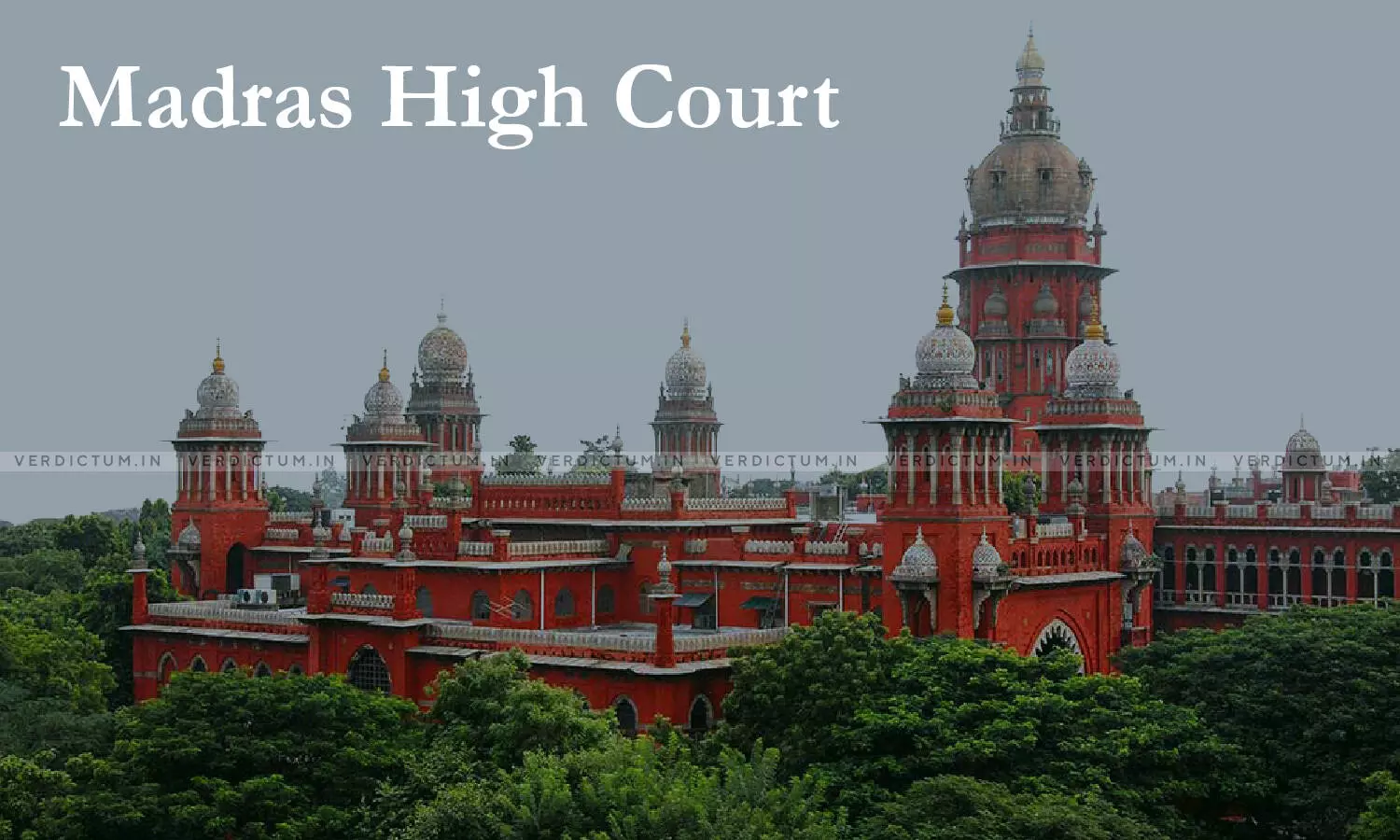
Court Has Power To Grant Interim Maintenance U/S 151 CPC To Muslim Wife Who Has Filed Divorce Petition: Madras HC
 |
|The Madras High Court has held that the Courts have the power to grant interim maintenance to a Muslim wife while exercising its inherent powers under Section 151 of the Code of Civil Procedure, 1908 (‘Code’) in a divorce petition under Dissolution of Muslim Marriage Act, 1939 (‘Act of 1939’).
The Bench of Justice V. Lakshminarayanan, while referring to its own judgment in Hajee Mahomed Abdul Rahman v. Tajunnissa Begum, (1953), held, “A reading of Section 151 of the Code makes it clear that it can be invoked in order to pass orders, which are necessary to meet the ends of justice. The word “inherent” implies that it does not require a Section to confer the specific power on the Court, but it inheres by the very existence of the Court. It is something, which is basic or permanent to the Court, and it cannot be removed. The inherent power of the Court is merely recognised by Section 151. Even without the said section, the Court will continue to have the power as it inheres in it in the matter of things. Therefore, the statement of Ms.Gopika Nambiyar that there is no power to grant interim maintenance is not supported by the weight of authorities of the Supreme Court, this Court and as referred to above, a Full Bench of Andhra Pradesh High Court.”
Advocate Gopika Nambiyar appeared for the Petitioner-husband.
A civil revision petition was filed raising an interesting question of law i.e. whether a Muslim wife, who had presented a plaint in terms of Section 2 (viii) of the Act of 1939, is entitled to receive an interim maintenance pending disposal of the said proceedings under Section 151 of the Code.
The Petitioner-husband assailed the order passed by the Family Court. According to the Respondent-wife, her husband and sister-in-law treated her unfairly and she suffered from physical and verbal assault at their hands. The wife also attempted to contact the child, but she was not able to do so, and the petitioner refused to permit her to talk with the child.
The wife, consequently, initiated the proceedings under Section 2(viii) of the Act seeking dissolution of the marriage. She also filed an application seeking interim maintenance of Rs. 50,000/- as she lost her employment and her husband was earning a salary of Rs. 2,50,000/-.
The Counsel for the Petitioner-husband submitted that Section 151 of the Code of Civil Procedure cannot be utilised for ordering interim maintenance and it provides only procedural relief and not any substantive relief, therefore, the Trial Judge had erred in ordering maintenance invoking Section 151.
The Court analysed the position of maintenance under the Muslim Personal Law. It referred to the book in Islamic Jurisprudence i.e. Al-Durr al-Mukhtar Sharh Tanwir al-Absar. The Court said according to Durr ul-Mukhtar, the wife is treated as the "asl" (root) and the children are considered as the "far" (branch) for the purpose of maintenance. This implies that the wife is given priority in receiving maintenance. As per the Pristine Islamic law, the Court added that the wife is entitled to maintenance from her husband, even if she has the means to maintain herself. This duty of the husband to maintain the wife continues, even if he does not have sufficient means.
As regards Jurisprudence in India, the Court referred to two books i.e. Hedaya and Fatawa-E- alamgari. According to the eminent jurists, the Court said, who have written these books, while fixing the sum for maintenance, the Court has to take into consideration the status and the circumstances of both the spouses. Similarly, the Court referred to the book Principles of Muhammadan Law by Tyabji.
The Court also discussed the history of the Act of 1939 and the scope of Section 2 of the Act.
The Court, while referring to the judgments in Ahmed Abdul Qadeer v. Raffat Banu(1978 AP) andIttoochalil Meethal Moossa v. Pachiparambath Meethal Fathimas, (1983 KER), stated, “It is pertinent to point out the difference between Sections 2(ii) and 2(iv) of the said Act. Under Section 2(ii), it is the duty of the husband to maintain his wife, whereas under Section 2(iv), the wife will have to prove that the husband has failed to perform his marital obligations without a reasonable cause. This shows that the duty to provide maintenance to the wife is an obligation on the husband if he intends to keep the relationship intact. The legislature, in its wisdom, did not include the restriction found in Section 2(iv) i.e., “without a reasonable cause” in Section 2(ii).”
The Court further highlighted the importance of socio-economic justice and the right to interim maintenance. It said that a court cannot shut its eyes when the wife pleads before it that she is unable to maintain herself. The Court remarked that if the submission of the Counsel is accepted then the wife would be thrown to the wolves and would have to run from pillar to post to secure a basic right which is the right to live with decency and dignity.
“The wife is entitled to live in the same circumstances and social status if she would have continued to live in the matrimonial home. For the mere fact that she has been separated from her husband does not mean she has to spend for herself. For the mere fact that the respondent/wife was born in the Muslim community does not mean she is not entitled to maintenance.”
Accordingly, the Court dismissed the Civil Revision Petition and upheld the order of the Family Court.
Cause Title: XXXX v. YYYY
Appearances:
Petitioner: Advocate Gopika Nambiyar